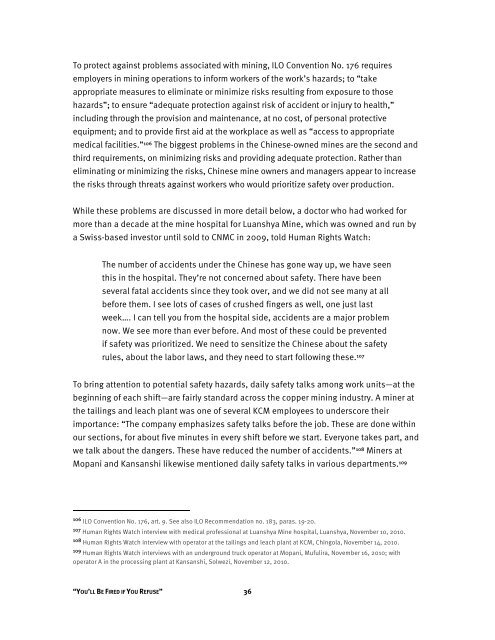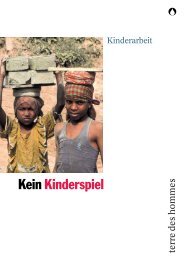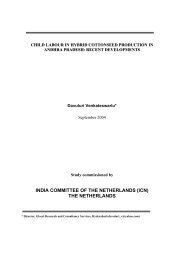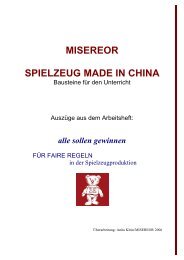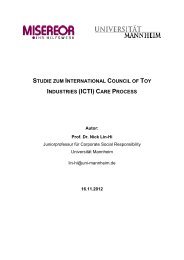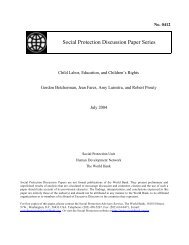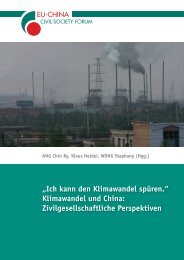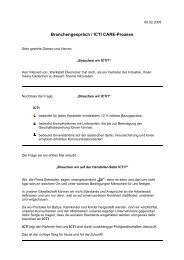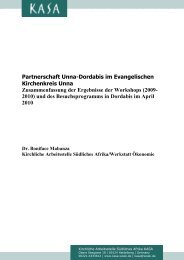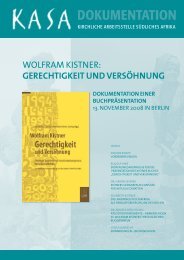“You'll Be Fired if You Refuse†- Human Rights Watch
“You'll Be Fired if You Refuse†- Human Rights Watch
“You'll Be Fired if You Refuse†- Human Rights Watch
You also want an ePaper? Increase the reach of your titles
YUMPU automatically turns print PDFs into web optimized ePapers that Google loves.
To protect against problems associated with mining, ILO Convention No. 176 requires<br />
employers in mining operations to inform workers of the work’s hazards; to “take<br />
appropriate measures to eliminate or minimize risks resulting from exposure to those<br />
hazards”; to ensure “adequate protection against risk of accident or injury to health,”<br />
including through the provision and maintenance, at no cost, of personal protective<br />
equipment; and to provide first aid at the workplace as well as “access to appropriate<br />
medical facilities.” 106 The biggest problems in the Chinese-owned mines are the second and<br />
third requirements, on minimizing risks and providing adequate protection. Rather than<br />
eliminating or minimizing the risks, Chinese mine owners and managers appear to increase<br />
the risks through threats against workers who would prioritize safety over production.<br />
While these problems are discussed in more detail below, a doctor who had worked for<br />
more than a decade at the mine hospital for Luanshya Mine, which was owned and run by<br />
a Swiss-based investor until sold to CNMC in 2009, told <strong>Human</strong> <strong>Rights</strong> <strong>Watch</strong>:<br />
The number of accidents under the Chinese has gone way up, we have seen<br />
this in the hospital. They’re not concerned about safety. There have been<br />
several fatal accidents since they took over, and we did not see many at all<br />
before them. I see lots of cases of crushed fingers as well, one just last<br />
week…. I can tell you from the hospital side, accidents are a major problem<br />
now. We see more than ever before. And most of these could be prevented<br />
<strong>if</strong> safety was prioritized. We need to sensitize the Chinese about the safety<br />
rules, about the labor laws, and they need to start following these. 107<br />
To bring attention to potential safety hazards, daily safety talks among work units—at the<br />
beginning of each sh<strong>if</strong>t—are fairly standard across the copper mining industry. A miner at<br />
the tailings and leach plant was one of several KCM employees to underscore their<br />
importance: “The company emphasizes safety talks before the job. These are done within<br />
our sections, for about five minutes in every sh<strong>if</strong>t before we start. Everyone takes part, and<br />
we talk about the dangers. These have reduced the number of accidents.” 108 Miners at<br />
Mopani and Kansanshi likewise mentioned daily safety talks in various departments. 109<br />
106 ILO Convention No. 176, art. 9. See also ILO Recommendation no. 183, paras. 19-20.<br />
107 <strong>Human</strong> <strong>Rights</strong> <strong>Watch</strong> interview with medical professional at Luanshya Mine hospital, Luanshya, November 10, 2010.<br />
108 <strong>Human</strong> <strong>Rights</strong> <strong>Watch</strong> interview with operator at the tailings and leach plant at KCM, Chingola, November 14, 2010.<br />
109 <strong>Human</strong> <strong>Rights</strong> <strong>Watch</strong> interviews with an underground truck operator at Mopani, Mufulira, November 16, 2010; with<br />
operator A in the processing plant at Kansanshi, Solwezi, November 12, 2010.<br />
“YOU’LL BE FIRED IF YOU REFUSE” 36


